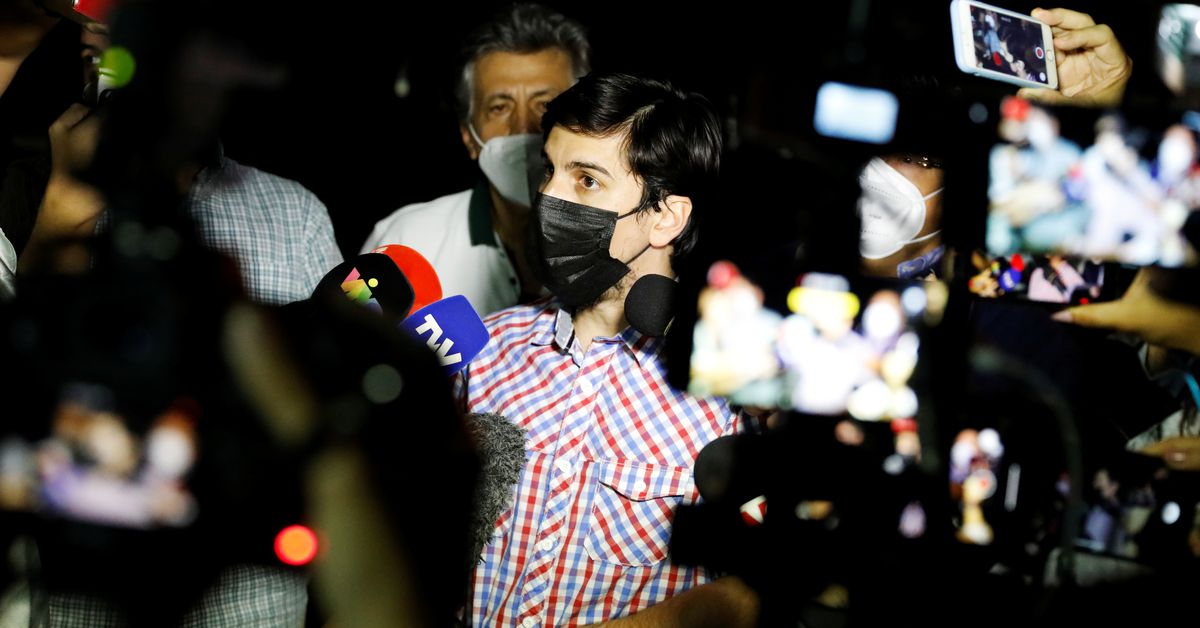Venezuela opposition leader Guevara willing to join talks with Maduro government

Venezuelan opposition leader Freddy Guevara looks on during an interview with Reuters after being released from prison, at his home, in Caracas, Venezuela August 17, 2021. REUTERS/Leonardo Fernandez Viloria
CARACAS, Aug 17 (Reuters) – Freed Venezuelan opposition leader Freddy Guevara said on Tuesday he is willing to participate in political negotiations with President Nicolas Maduro’s government, but is still waiting for opposition parties to decide on the issue.
Guevara, 35, was released from prison on Sunday, a month after he was jailed on charges of terrorism following a rash of gang violence in Caracas, accusations he and other opposition leaders described as fabricated. read more
“I am a soldier in this fight and wherever I am most useful is where I hope to be,” Guevara told Reuters in an interview at his home in eastern Caracas. “I don’t know the real reason they put me in prison, nor do I know the real reason they released me.”
Guevara, a member of the Popular Will party who was elected to Venezuela’s Congress in 2015, has been ordered to appear in court every 30 days but is not prohibited from leaving the country, his lawyer, Omar Mora, said in the interview.
Intelligence agents pulled Guevara from his car on a Caracas highway in July, and officials later said he was linked to gangs whose clashes with police shuttered parts of the capital several days earlier. read more
Maduro said on Monday he would welcome Guevara’s participation in the talks that kicked off with an initial meeting in Mexico City on Friday and are set to resume on Sept. 3. read more
The negotiations include more than a dozen countries, including Norway, Russia and the Netherlands.
Maduro, a socialist who was re-elected in a 2018 vote that opponents branded as fraudulent, says the process should lead to a lifting of U.S. sanctions on the South American nation, which he says are the cause of Venezuela’s deep economic crisis.
Opposition leaders are seeking increased humanitarian aid including COVID-19 vaccines, the release of imprisoned anti-government activists, and assurances of fair conditions for elections in November for governors and mayors.
Reporting by Vivian Sequera, Writing by Brian Ellsworth Editing by Paul Simao
Our Standards: The Thomson Reuters Trust Principles.






